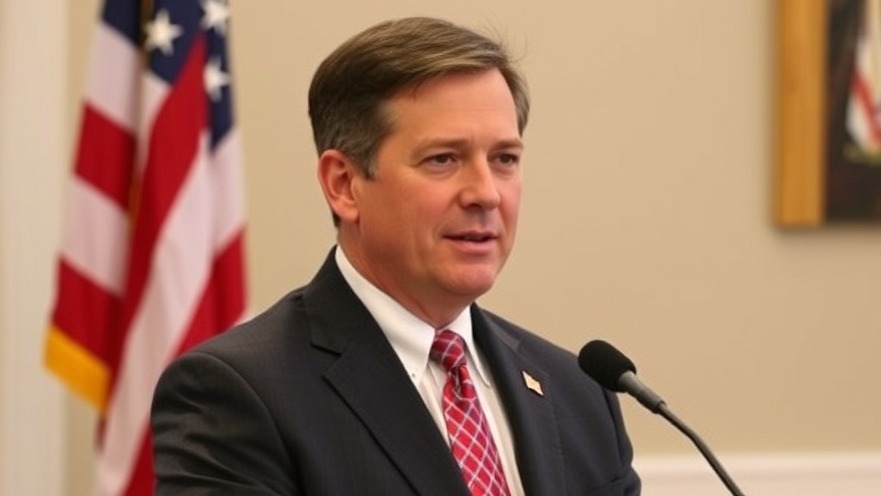
Behind the Curtain: How One Lawmaker United a Fractious GOP
In a political landscape marked by disarray and division, U.S. Representative Jodey Arrington of Lubbock emerged as an unexpected leadership figure in the GOP's efforts to pass a landmark tax and spending bill. This 'megabill,' a centerpiece of President Donald Trump's agenda, was critical not only for the Republican Party but also for the broader Texas economy. Understanding Arrington's role sheds light on how party dynamics and individual leadership can steer legislative outcomes, particularly in the face of fierce internal opposition.
Rallying the Troops: Tackling Internal Opposition within GOP
Negotiations surrounding the megabill were complex, filled with intense discussions among GOP members. Behind the scenes, members like Arrington worked tirelessly to unite a fractious GOP conference that included rebels within their ranks — notably some colleagues from Texas. Throughout the process, Arrington emphasized the importance of consolidating their agenda into one comprehensive package, a strategy which ultimately aimed to minimize dissent and maximize support. The unity he sought to foster was not merely a political tactic; it represented a crucial pivot point that could determine the GOP's future on economic policy.
A Bold Strategy: The Decision Behind the Megabill
Arrington faced a pivotal choice: proceed with a two-bill strategy, which would tackle border funding and energy policy separately, or consolidate everything into one 'Big Beautiful Bill' as referred to by Trump. Initially favoring the dual-step approach, Arrington pivoted to support the single-bill strategy. This significant shift was motivated by the realization that separating the bills could jeopardize critical spending cuts and tax policies crucial to their success.
The Economic Implications: What It Means for Texas
For many, the passage of the megabill signaled a new era of economic policy that would be felt across Texas. Arrington argued that despite potential drawbacks, the legislation would ultimately strengthen the economy by aligning with conservative fiscal priorities. The Texas economy, heavily reliant on diverse sectors such as oil, agriculture, and technology, could experience a beneficial ripple effect from the bill's intended tax cuts and spending measures. Yet, the looming concern is whether the projected $3.4 trillion deficit increase over the next decade could overshadow these benefits.
The Bigger Picture: Future Insights and Predictions
As Texas braces for the implications of this megabill, voters and economists alike are keenly watching the unfolding political landscape. The bill not only represents a significant legislative achievement for Arrington and Republican leaders but also poses existential questions about fiscal responsibility and the long-term sustainability of Texas’s economic policies. As upcoming elections loom, this megabill could become a double-edged sword for Texas Republicans, bolstering their claims to economic prowess while also factoring into voter sentiment regarding governmental spending.
Local Voices: Perspectives on Arrington’s Leadership
Arrington's leadership style has drawn mixed reactions. Many in his district value his willingness to dive into complex negotiations, while others remain skeptical about the long-term outcomes of his policies. His tenure as budget chair has not gone without criticism — North Texas voters will question if the trade-offs made in the megabill align with their needs. Local pundits suggest that Arrington’s next steps would be to engage his constituents transparently, illustrating how the bill would benefit Lubbock and beyond.
This dynamic exemplifies the ongoing challenge facing modern governance: balancing the demands of partisan politics with the needs of local constituents. As the political landscape evolves, engaged citizens and officials must work closely to ensure economic measures reflect the broad spectrum of needs within Texas.
 Add Element
Add Element  Add Row
Add Row 



Write A Comment